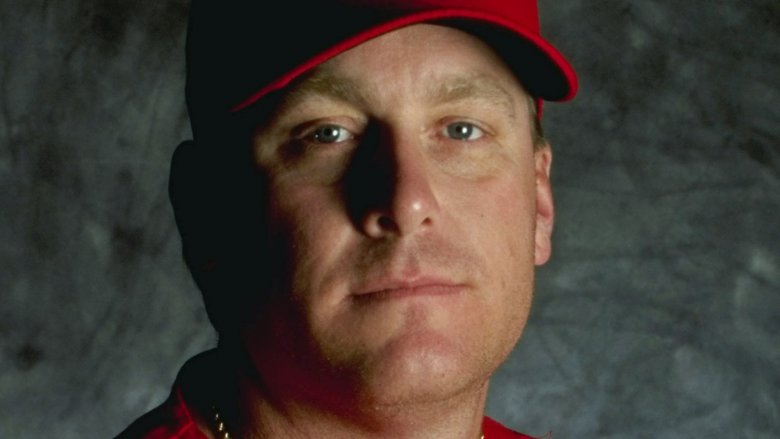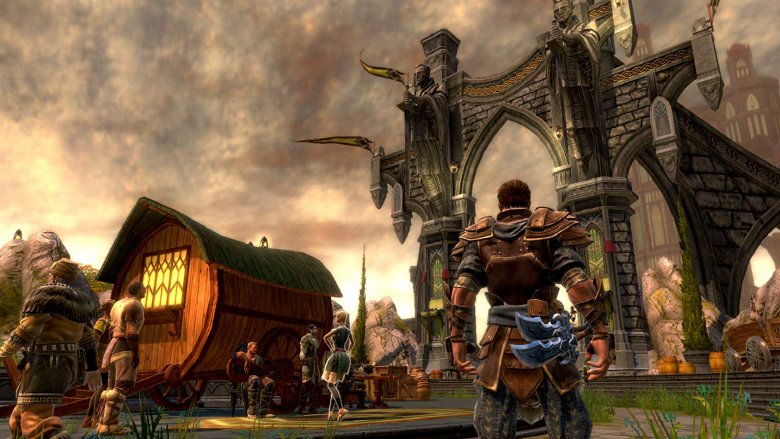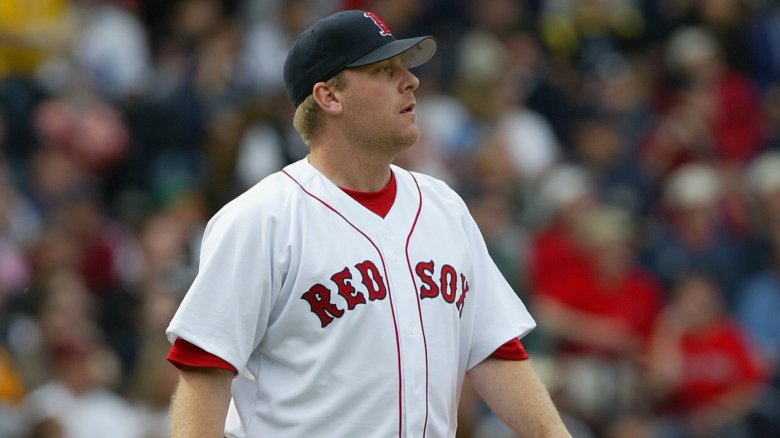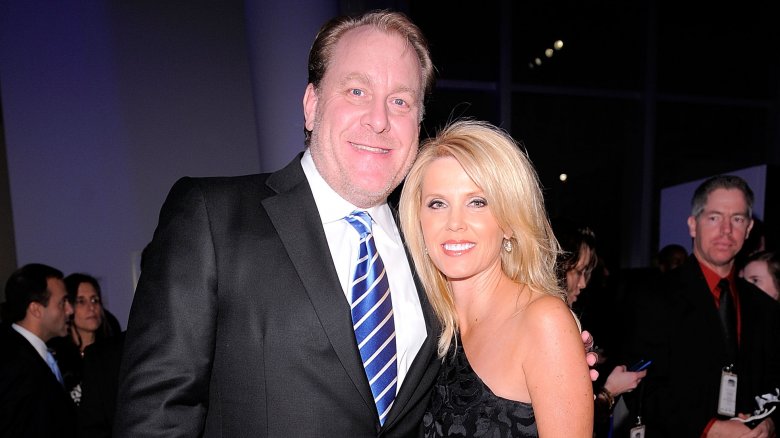How Curt Schilling Lost His Fortune
Over his major league baseball career, Curt Schilling reportedly made more than $115 million. As a pitcher, he signed his first monster contract extension in 2003 with the Boston Red Sox, a deal worth $25.5 million over two years with an option for a third. When he and the Red Sox won the World Series in 2004, Schilling was granted a $2 million bonus, earning him $14 million in total for the following year.
Upon Schilling's 2009 retirement, his net worth was a reported $50 million. Less than four years later, his reported worth had plummeted to approximately $1 million. How did it happen? How does one of baseball's great pitchers go from being a multimillionaire to having a single million?
Well, Schilling's fall from million-dollar grace is the result of bad choices, bad communication, and one incredibly bad investment. A series of events so unfortunate that Lemony Snicket would gasp, here is the story of how Curt Schilling lost his fortune.
Game over
The overarching reason behind Curt Schilling's unfortunate financial disaster was the failure of 38 Studios. Schilling, an avid video game fan, set out to create a video game studio that would rival the industry's best. The result was Green Monster Games, a name that would change to 38 Studios (Schilling's baseball jersey number).
Schilling saw Massively Multiplayer Online (MMO) games as the only way to get create a billion dollar company, and that's what he intended to do. According to Boston Magazine, Schilling estimated that his game would cost $40 to $50 million to make. He felt that a 10% investment would cover his end of the bargain. "I told my wife I was going to take $5 million and try it out," he said.
As the company grew, so did Schilling's investment, exploding to 10 times what he originally put in. "I have done whatever I can do to create jobs and create a successful business, with my own income," he said (via ESPN). "Fifty million dollars, everything I've ever saved, has been put back into the economy." Before long, Schilling was in too deep.
"I believed with every ounce of my being that everything was going to work itself out," he said. "I'm $50 million in at this point, so I'm not going to walk away." When 38 Studios went down, the captain went down with the ship.
Where is Project Copernicus?
The MMO that 38 Studios started developing — remember, this expansive role-playing format had Curt Schilling seeing (a billion) dollar signs, according to Boston Magazine — was Project Copernicus (pictured above). Initial development targets were set for 2010, but they soon found themselves years behind. For six years, 38 Studios worked on the game, but before it had a chance to meet its alleged June 2013 release date, the company folded.
Rhode Island Governor Lincoln Chafee, who played a prominent role in this saga thanks to a controversy over tax credits the game studio was banking on to keep them afloat, had his own theory about 38 Studios' big failure, namely, that the cost of developing the game was unsustainable. According to him (via CNN), 38 Studios was spending approximately $4 million per month on Copernicus alone. For Schilling, however, the game simply "wasn't fun."
"It was my biggest gripe for probably the past eight to 12 months," he told Boston Magazine. While he admitted that it was improving, it took too long for the game to become engaging. He even claims that people weren't playing it when he walked around the office. In the end, all that was released from the MMO was a trailer, a few gameplay videos, and some screenshots.
A day of Reckoning
As 38 Studios worked toward its ultimate goal of completing the MMO code-named Project Copernicus, another title, a single player game, was conceived, designed, completed, and released. Produced by Big Huge Games, a small, Maryland-based video game company that 38 Studios bought in 2009, Kingdoms of Amalur: Reckoning (pictured above) was unveiled in February of 2012.
On the surface, the game was successful. According to Curt Schilling, who boasted about the game's achievements on Twitter, it sold 1.22 million copies over 90 days, apparently far-exceeding expectations. But it would seem that mixed reviews led to a decrease in momentum. In total, the game sold 1.3 million copies.
Those numbers might seem high, but according to Governor Chafee, it wasn't even close to enough. "The game failed," he said in a press conference (via Kotaku). "The game failed." In fact, Chafee suggested that the game would need to more than double its sales just to start making money. "The experts are saying in the three million range just to break even," he explained.
A broken promise
Though there were many different reasons and opinions why 38 Studios failed, Curt Schilling points to the company's inability to secure tax credits from the Rhode Island government as one of the driving forces, "film tax credits" that Schilling argues were promised to them (via ESPN).
According to Boston.com, Bill Thomas, the president of 38 Studios, wrote that the state promised the company at least $8.7 million. Previously, the studio even borrowed millions from Bank Rhode Island with the promised tax credits as part of the collateral. Governor Chafee, however, refused to release the funds because, according to ESPN, 38 Studios had already received "so much in state bond proceeds."
The result was catastrophic. With 38 Studios allegedly relying on those tax credits to cover its $1.1 loan-guarantee payment to the Economic Development Corporation and having its request to defer the payment denied, the company missed payroll. Afterward, David Sullivan, the Rhode Island Tax Administrator, suggested that the company was never promised tax credits in the first place.
Making it a public matter
After a meeting with 38 Studios in April 2012, Governor Chafee met with reporters and spoke publicly about the matter. According to The Providence Journal, the Governor said that the company was "tapped out," adding, "They needed further help from the state. We came out of there stunned." After the meeting the following month, Chafee said that they were reviewing "all the financials" and that they were working on "keeping 38 Studios solvent."
Speaking to The Providence Journal (via ESPN) Curt Schilling called these comments "devastating." He added, "We're trying to save this company and we're working 24/7. The public commentary has been as big a piece of what's happening to us as anything out there."
According to his interview with Boston Magazine, Schilling believed that he was close to a deal with Take-Two Interactive to create a sequel to Kingdoms of Amalur: Reckoning. He felt that Chafee's comments scared off any and all investors, an accusation that Chafee denied.
The best of everything
When Curt Schilling created 38 Studios (previously Green Monster Games), employee satisfaction sat very high on his list of priorities. "From top to bottom," he told The Escapist, "this company will operate with a very different mandate in every aspect, from how we treat our employees, how our employees are compensated and their vested interest in the profitability of the company to every ounce of every product we produce."
He followed through on his promise, at least, for most of the studio's run. As Boston Magazine highlighted, "That meant gold-plated healthcare, for which employees had no paycheck deductions, and top-notch 401(k)s, with the company matching to the legal limit." Schilling even paid for some of the perks out of his own pocket, including the "new laptop computers for every employee" he purchased one year for Christmas. That one apparently cost Schilling $2.5 million.
Company spending wasn't much better. Between 2007 and 2008, they spent $705,000 on "travel and entertainment." For new hires, rather than offer than stock options, Schilling allegedly offered 50-50 profit shares, a move that studio CEO Brett Close canned because "investors' heads would explode." It's possible that all this giving without ever getting hurt 38 Studios in the end.
As good as gold
When 38 Studios had worked through approximately $50 million of state-backed loan money, Curt Schilling turned to Bank Rhode Island to secure a loan that would buy his company more time. According to The Providence Journal, the bank loaned 38 Studios $8.5 million. As collateral, Schilling was forced to put up his gold coin collection worth approximately $5 million.
As per the Boston Globe, Schilling's collection included more than 3,200 one-ounce coins, including "some 200 pounds of South African Krugerrands, Canadian Maple Leafs, and American Eagles." With the game Kingdoms of Amalur: Reckoning just released, it would appear that Schilling was confident in the company's turnaround. Why else would he give up such a valuable collection?
According to Boston Magazine, however, the following month, after hiring in two new executives, 38 Studios also "stopped paying vendors like Blue Cross Blue Shield. It had already been ignoring bills from Atlas Van Lines for some time." On the surface, things looked good, but under the water 38 Studios appeared to be kicking furiously.
Schilling gets sued
After the collapse of 38 Studios, the different money lenders all tried to recoup as much as possible. The the Economic Development Corporation and several banks established lawsuits against both Curt Schilling and the game studio. Shortly after the studio filed for bankruptcy, RBS Citizens Bank reportedly sued Schilling for $2.4 million. A few months later, the lawsuit was dropped without a cited reason. That could mean that an out-of-court settlement was reached.
Schilling's dealings in court weren't finished, though. In another suit, about four years later, Schilling and three others settled a lawsuit with the Rhode Island Commerce Corp. The group agreed to pay $2.5 million split among them, according to USA Today. The publication also reported that in applying for settlement, the Rhode Island Commerce Corp. stated that dragging the case out any longer "makes no economic sense whatsoever." After reviewing the defendant's remaining assets, it was determined that they would not be able to cover the full amount being sought in the case of a victory, so it would prove fruitless to continue.
Sports and War Memorabilia
With his savings depleted and his debts piling up faster than he could overcome, Curt Schilling began purging as much of his valuable property as he could. As part of his efforts to recover some of his losses and pay out his debts from various settlements, the former pitcher auctioned off some of his most valuable collectibles, including sports and war memorabilia.
From his sports collection, Schilling listed "a baseball hat believed to have been worn by New York Yankees great Lou Gehrig," as well as his own "famed bloody sock," according to the Daily News. In the 2004 World Series, Schilling made headlines and history with an injured a bloody ankle. Schilling donated the blood-stained sock from that injury to the Baseball Hall of Fame, but was forced to ask for it back in order to auction it.
"I'm obligated to try and make amends," Schilling told WEEI-AM in Boston (via the Daily News). "Unfortunately, this is one of the byproducts of that." The sock was eventually sold for $92,613. Schilling also auctioned off war memorabilia, including some items that were held at a World War II museum. Since many of the auction houses restrict selling Nazi memorabilia, however, it would seem that much of Schilling's collection was ineligible for sale.
The estate sale
Sadly, it appears that Curt Schilling's unloading of personal items didn't stop with the memorabilia and gold coins. In October of 2013, he listed his Medfield, Massachusetts home for sale, and held an estate sale as well, according to ESPN. Despite his wife, Shonda Schilling (pictured above), stating that the estate sale wasn't because of the family's finance issues but rather because they were "downsizing," the timing was interesting to say the least.
In the estate sale, the sellers were lucky that Schilling's fame led to increased interest in otherwise ordinary items. Some of the buyers at the estate sale, for example, considered Schilling's use of the items when making purchases. "I saw the scales and thought, 'What a riot to give to my dad,'" said Bill Fegley, alluding to the fact that Schilling might have stood on the scales with his famous bloody sock.
As for the house, the Schillings bought their 26-acre estate from former NFL quarterback Drew Bledsoe in 2004 for $4.5 million. There was a reported tentative sale in 2014 for $2.5 million, but it fell through for some unreported reason. In 2015, the Schilling's listed the 20-room home once more $2.5 million.
Fired from ESPN
Schilling has proven to be a vocal professional. He often spoke publicly about the things that mattered to him, but the topics and the way in which Schilling said things got him in trouble a few times over his career. Since 2010, Schilling worked on the ESPN network providing analysis, most recently on Monday Night Baseball. He lasted until April of 2016.
The first sign of real trouble was in 2015 when Schilling posted an extremely controversial graphic to social media, comparing Muslims to Nazis. The analyst was suspended, and he expressed regret for posting the content. Then, in early 2016, Schilling got on the topic of Hillary Clinton while he was a guest on a Kansas City radio show (via Sports Illustrated).
"If I'm gonna believe, and I don't have any reason not to believe, that she gave classified information on hundreds if not thousands of emails on a public server after what happened to General Petraeus," he said. "She should buried under a jail somewhere."
The final nail in his ESPN coffin came after his Facebook post about transgender people (via The New York Times), which included some particularly offensive commentary regarding how and where they should use the bathroom. He was fired shortly after.
Selling of the final assets
The last chapter of 38 Studios appeared to close in September of 2018 when the final assets of the company were sold off to another company, THQ Nordic out of Austria. WPRI reported the liquidated assets totaled close to $1.9 million, but after "legal fees" and maintenance fees, the sale number came in at $900,000.
According to Richard Land, the receiver for 38 Studios on the deal, the sale could have been much larger if not for bad publicity. "It was considerably difficult [to sell the assets] and there are a lot of reasons for that, but a significant reason was the adverse publicity around 38 Studios," he told WPRI. "At the very beginning of the case where I was talking with some big players, they didn't want to have any involvement in the ongoing sale of the assets."
With the sale, there's now a possibility that future games might spawn from the intellectual property, a prospect that made some members of the former 38 Studios happy, but not everyone was thrilled. Curt Schilling appeared sour in his comments regarding the sale, suggesting, once again, that the state of Rhode Island made a major mistake letting (or making) the studio collapse.













